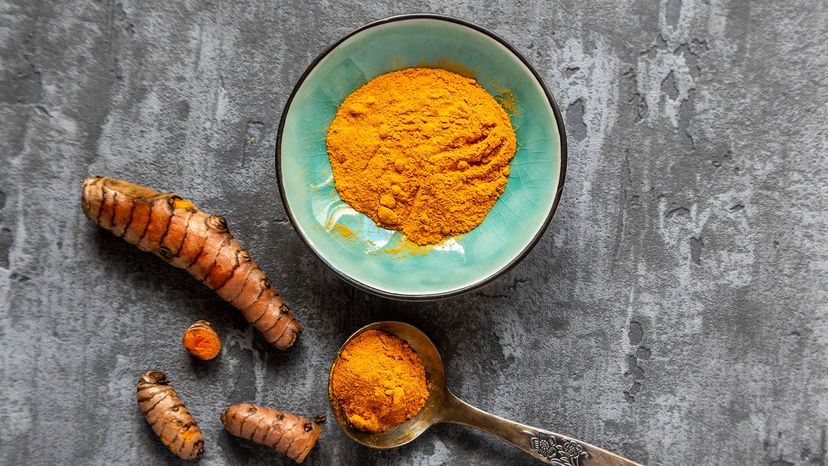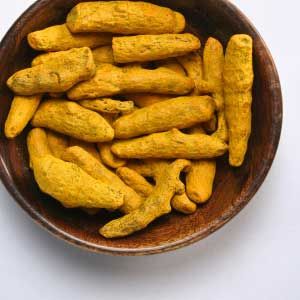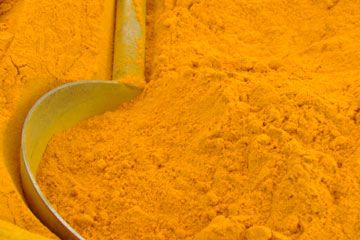Turmeric has been part of Ayurveda, a branch of alternative medicine that treats mind, body and spirit together, for thousands of years. "In Ayurvedic practices, it is thought to improve the overall energy of the body," explains Majumdar.
Much like modern-day prescription drugs, turmeric has an "active ingredient," called curcumin, the bioactive compound that gives the spice its oomph. In fact, curcumin is the reason turmeric is claimed to help with a litany of health issues like digestion regulation, hay fever, skin issues, breathing problems, gas relief, PMS, back pain and even Alzheimer's. Most importantly, turmeric has been hailed for its anti-inflammatory properties, much like ginger. Turmeric seems to block inflammatory cytokines and enzymes within cells in your body.
But does science back this up? One small randomized study in 2012 gave 500 mg of curcumin to patients with rheumatoid arthritis, while a second group of patients was given 50 mg of diclofenac sodium, an anti-inflammatory drug. A third group got both treatments. While all three groups experienced a reduction in swelling and tenderness of their joints, the group that got only curcumin had the most improvement.
Another randomized study from 2014 of 107 people compared patients with osteoarthritis in the knee who were given 1,000 mg of curcumin with patients who were given 800 mg of ibuprofen. The scientists found that there was a similar rate of reduction in pain when walking for both groups. Nevertheless, the National Institutes of Health (NIH) says that claims of the anti-inflammatory properties of turmeric and its inherent curcuminoids have yet to be validated by strong studies. That's not to say that turmeric doesn't relieve inflammation – just that science hasn't yet definitively determined whether or not it does.
Indeed, turmeric still being looked at for this and a number of other benefits. The NIH also notes that preliminary studies show that curcuminoids could lower the number of post-surgery heart attacks in bypass patients and also reduce the skin irritation that often occurs after radiation treatments for breast cancer.
Another promising use for turmeric may be depression. "Turmeric and depression has not been studied on a long-term basis, but in 6-8 week trials, participants demonstrated improved symptoms when taking turmeric alongside their antidepressant," Majumdar says. One six-week study showed curcumin was almost as effective as the drug fluoxetine (Prozac) at relieving depression and didn't cause that drug's side effects like "thoughts of suicide."



